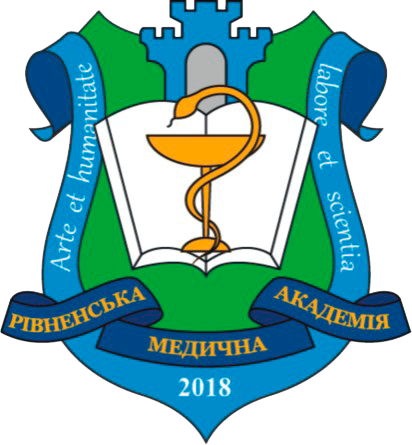CURRENT TRENDS AT THE MANAGEMENT OF GERD: THE ROLE OF ALGINATES IN COMPLEX TREATMENT
DOI:
https://doi.org/10.32782/health-2023.4.9Keywords:
non-erosive reflux disease, alginates, proton pump inhibitors, gastroesophageal reflux diseaseAbstract
Gastroesophageal reflux disease (GERD) is one of the most common diseases, the frequency of which is increasing. The actual prevalence of the disease is little studied. This is due to the wide variability of clinical manifestations: from episodic heartburn, in which patients rarely consult a doctor, to severe signs of complicated reflux esophagitis (RE), which requires hospitalization. The criteria for making a diagnosis have been revised in recent years and have become more targeted. Diagnosis is based on a clinical assessment of symptoms and response to antireflux therapy, evidence of damaged mucous membrane during endoscopy and the presence of pathological changes according to reflux monitoring data. Such a serious complication of GERD as Barrett’s esophagus, which is considered a precancerous condition, is extremely rarely diagnosed. Proton pump inhibitors (PPIs) are recommended as the most effective class of drugs for the treatment of GERD. At the same time, the issue of prescribing drugs capable of quickly eliminating the symptoms of the disease and increasing the efficiency and quality of patient therapy remains relevant. Convincing evidence of the effectiveness of alginates in the course treatment of GERD has been obtained, both as monotherapy and in combination with PPIs. Alginates are effective against all types of reflux regardless of pH. Accumulated scientific data and additional application experience allow not only to consider alginates (a drug with a physical anti-reflux mechanism of action) as an emergency aid at the exit and for long-term monotherapy or in combination with PPIs, but also to consider their effectiveness as a diagnostic criterion of the disease. An overview of key consensus documents on the diagnosis and treatment of GERD is presented.
References
Durazzo M., Lupi G., Cicerchia F. Extra-Esophageal Presentation of Gastroesophageal Reflux Disease: 2020 Update. Journal Clinical Medical. 2020. № 9(8). P. 2559. https//doi.org/10.3390/jcm9082559.
Young A., Kumar M.A., Thota N. GERD: A practical approach. Cleve Clinical Journal Medical. 2020. № 87(4). P. 223-230. https//doi.org/ 10.3949/ccjm.87a.19114.
Vakil N., van Zanten S.V., Kahrilas P. Global Consensus Group. The Montreal definition and classification of gastroesophageal reflux disease: a global evidence-based consensus. Americal Journal Gastroenterology. 2006. № 101(8). Р. 1900-1920. https//doi.org/10.1111/j.1572- 0241.2006.00630.x.
Gyawali C.P., Kahrilas P.J., Savarino E. Modern diagnosis of GERD: the Lyon Consensus. Gut. 2018. № 67(7). P. 1351–62. https//doi.org/10.1136/ gutjnl-2017-314722.
Li X., Lin S., Wang Z., et al. Gastroesophageal reflux disease and chronic cough: A possible mechanism elucidated by ambulatory pH-impedance-pressure monitoring. Neurogastroenterol Motil. 2019. № 31(12). P. 13707. https//doi.org/10.1111/ nmo.13707.
Voulgaris T., Lekakis V., Orfanidou A., Vlachogiannakos J., Kamberoglou D, Papatheodoridis G, Karamanolis G. The Lyon Consensus Criteria for GERD Diagnosis in a Greek Population: The Clinical Impact and Changes in GERD Diagnosis in a Real-World, Retrospective Study. Journal Clinical Medicine. 2022. № 11(18). Р. 5383. https//doi.org/10.3390/jcm11185383.
Jung H.K., Tae C.H., Song K.H. Korean Society of Neurogastroenterology and Motility. 2020 Seoul Consensus on the Diagnosis and Management of Gastroesophageal Reflux Disease. J Neurogastroenterol Motil. 2021. № 27(4). P. 453–81. https//doi.org/10.5056/jnm21077.
Katz P.O., Dunbar K.B., Schnoll-Sussman F.H. ACG Clinical Guideline for the Diagnosis and Management of Gastroesophageal Reflux Disease. Journal Gastroenterology. 2022. № 117(1). P. 27. https//doi.org/ 10.14309/ajg.0000000000001538.
Mermelstein J., Chait Mermelstein A., Chait M.M. Proton pump inhibitor-refractory gastroesophageal reflux disease: challenges and solutions. Clinical Experimental Gastroenterology. 2018. № 11. P. 119–34. https//doi.org/10.2147/ CEG. S121056.
Manabe N., Haruma K., Ito M. Efficacy of adding sodium alginate to omeprazole in patients with nonerosive reflux disease: a randomized clinical trial. Diseases. Esophagus. 2012. № 25(5). P. 373–380. https//doi.org/10.1111/j.1442-2050.2011.01276.x.
Moayedi S., Yadegar A., Balalaie S. Sugar Codes Conjugated Alginate: An Innovative Platform to Make a Strategic Breakthrough in Simultaneous Prophylaxis of GERD and Helicobacter pylori Infection. Drug Des Devel Ther. 2020. № 14. P. 2405–2412. https//doi.org/10.2147/DDDT.S255611.
Rettura F., Bronzini F., Campigotto M. Refractory Gastroesophageal Reflux Disease: A Management Update. Front Med. (Lausanne). 2021. № 8. P. 765061. https//doi.org/10.3389/ fmed.2021.765061.
Chiu C.T., Hsu C.M., Wang C.C. Randomised clinical trial: sodium alginate oral suspension is non-inferior to omeprazole in the treatment of patients with non-erosive gastroesophageal disease. Aliment Pharmacological Theapyr. 2013. №. 38(9). P. 1054–64. https//doi.org/10.1111/apt.12482.
Pizzorni N., Ambrogi F., Eplite A., et al. Magnesium alginate versus proton pump inhibitors for the treatment of laryngopharyngeal reflux: a noninferiority randomized controlled trial. Eur Arch Otorhinolaryngol. 2022. № 1(10). P. 1243–1246. https//doi.org/10.1007/ s00405-021-07219-0.





